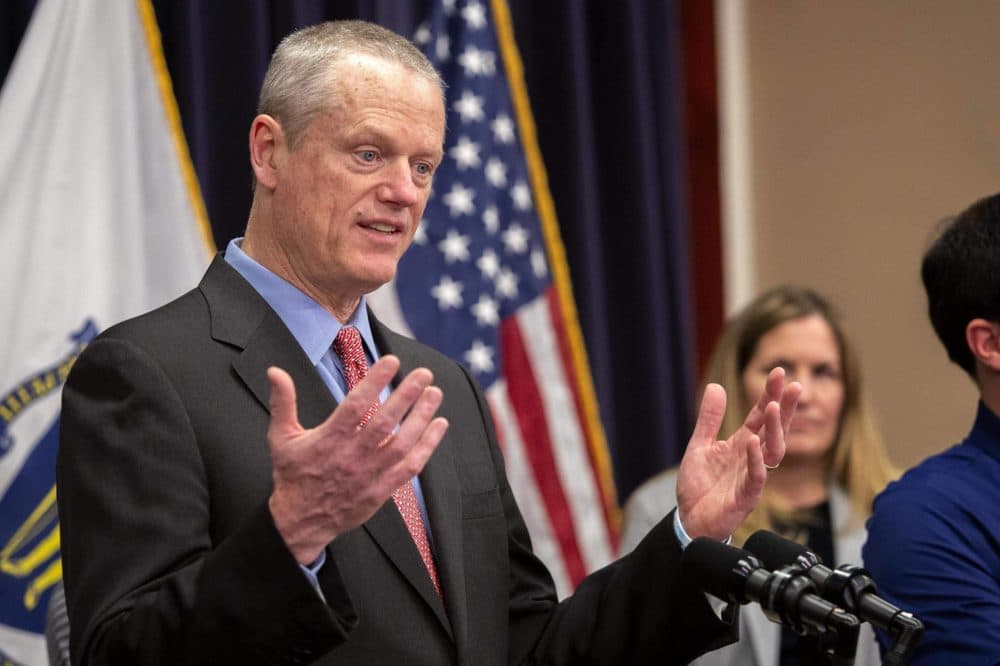Advertisement
Gov. Baker Plans To Sign Landmark Climate Bill Into Law

After months of back and forth between the legislature and governor’s office, Gov. Charlie Baker said he’s planning to sign a landmark climate bill into law.
This wide-ranging climate legislation represents the most significant update to Massachusetts’ environmental law since the 2008 Global Warming Solutions Act. It codifies the ambitious goal of reducing greenhouse emissions to net-zero by 2050, and sets sector-specific emission reduction targets. It also requires the state buy more electricity from offshore wind, establishes new appliance efficiency standards and updates the opt-in building stretch code rules.
The law contains new strong provisions about environmental justice. It defines an environmental justice community based on race, income and language-proficiency criteria, and lays out new pathways for residents of environmental justice communities to play a more meaningful role in the state's decision-making process for new developments, energy infrastructure or any other projects likely to impact air, water or soil quality.
The law also, importantly, says that when the state is considering whether to approve any new project in an environmental justice community, it must look at cumulative impacts — essentially how the emissions or other impacts from a given project will add to any already existing environmental burden.
The reaction from environmental advocates, many of whom have been advocating for this legislation for years, was swift and strong.
“We did it!” Andrea Nyamekye of the nonprofit Neighbor To Neighbor wrote WBUR in a text. “After 20 long years, we now have true environmental justice protections for our most vulnerable communities in the Commonwealth. This is just one step in ameliorating public health and environmental harms that have plagued Massachusetts communities, and disproportionately Black, Brown, Indigenous, immigrant, and working class communities, for far too long.”
Caitlin Peale Sloan, interim director of the Massachusetts chapter of the Conservation Law Foundation, also applauded the news.
“Massachusetts is already seeing the impacts of climate change, so we must continue to lead on climate policy," she said in a statement. "As this bill becomes law, we can finally begin the essential work of slashing emissions and creating a safer, more sustainable future for all residents.”
Baker didn’t elaborate on when, exactly, he will sign the measure. He has until Sunday to sign. If he waits longer than that, it automatically becomes law.
After more than six months of negotiations the legislature sent a slightly different version of this bill to Gov. Baker in early January. Baker vetoed the bill a few days later, citing concerns about new municipal stretch codes and interim emissions reduction goals. The legislature then sent the bill back in the exact same form later that month, and this time, Baker returned it with amendments.
The final bill that Baker intends to sign maintains most of the original provisions but does include some of his proposed amendments — more flexibility around the sector-specific emission targets, for example. In this final version, if the state meets its overall emissions goals, it won't be subject to legal liability for falling short in one or two sectors.
This article was originally published on March 25, 2021.
